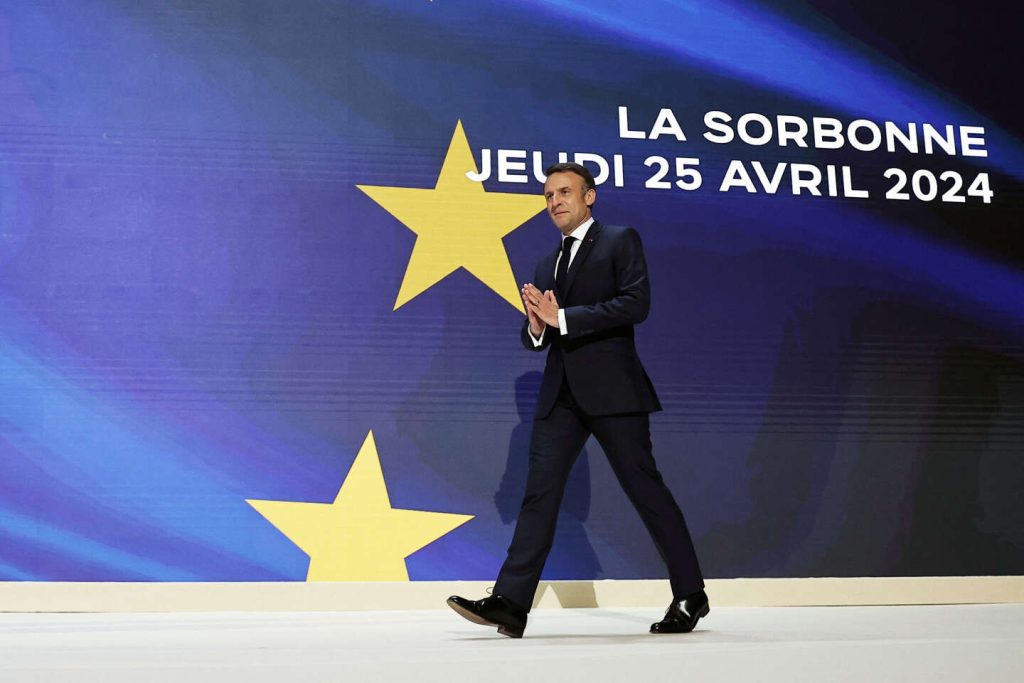French President Emmanuel Macron delivered a speech on Europe at the University of La Sorbonne on April 25, 2024, emphasizing the need for a strong and sovereign Europe given the challenges posed by the pandemic and increasing geopolitical tensions. Macron, who chose the same venue for a similar address at the beginning of his first term in 2017, sought to outline a vision for an “Europe puissance” capable of defending its interests in a hostile world marked by events such as the Russian invasion of Ukraine and the rivalry between China and the United States.
While Macron’s speech came at a time when his party’s European election campaign was lagging behind the far-right Rassemblement national in the polls, his focus extended beyond immediate electoral concerns. He aimed to influence the strategic agenda of the European Union for the coming legislative term and the work program of the next European Commission, led by Ursula von der Leyen. In the face of growing populist tendencies advocating for isolationism, Macron continued to advocate for the European project as a means of making an impact on the world stage.
The changing global landscape, characterized by an increasingly aggressive Russia, a potentially declining US presence in Europe, and China’s global ambitions, presents significant challenges for the European Union. Guillaume Klossa, who contributed to a collective report to EU leaders, highlighted the urgent need for Europe to adapt to these new realities. Macron’s speech addressed these challenges and stressed the importance of overcoming past taboos to strengthen Europe’s position in the face of these threats.
Macron’s call for a more ambitious and united Europe reflects his belief in the value of the European project as a bulwark against external pressures. The need for a coherent and assertive European strategy has become more pressing in the wake of recent events and geopolitical shifts. Macron’s speech aimed to inspire European leaders to take decisive action and shape a shared vision for the future of the continent, focusing on issues such as defense, security, and economic cooperation.
As Macron navigates both domestic challenges and broader European issues, his speech at the University of La Sorbonne underscored his commitment to shaping a more cohesive and influential Europe in the face of external threats. By emphasizing the importance of strategic autonomy and asserting Europe’s role on the global stage, Macron sought to rally support for a renewed vision of the European project. The outcomes of his address and the broader European response to his proposals will be crucial in shaping the EU’s trajectory in the coming years.


